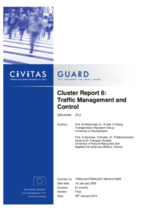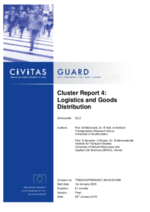Decision support for environmental impact assessment of traffic planning
Thematic areas
Behavioural change & mobility management
Summary
The aim of this measure was to improve existing tools for evaluating the environmental impact of the Genoa’s traffic planning measures.
Implementing sustainable mobility
Evaluations of the environmental consequences of traffic planning measures enable decision makers to identify the best solutions for reducing traffic congestion and alleviating the negative impacts of urban transportation on citizens’ health. Prior to the measure, various tools were being used to carry out mobility analyses, but they were not full integrated. The measure was designed to extend some of the existing tools and to create new modules and interfaces to link the different components into a unique modeling platform.
The main objectives were to:
- produce a fully integrated and advanced set of tools to evaluate traffic emissions, taking into account data such as traffic flow, topography and atmospheric conditions;
- evaluate the environmental impacts of traffic planning measures;
- obtain clear outputs readily understood by citizens and useful to politicians; and
- develop a tool for use as evaluation support in the case of significant changes in traffic conditions.
Progress
Activities comprised a comprehensive examination of all aspects related to the integration of traffic and environmental data, such as outlining general methodologies to define appropriate parameters (e.g. vehicle fleet composition) and developing the interfaces between the diverse traffic, pollutant emission and pollutant diffusion models.
Outcomes
A fully integrated decision support tool for environmental impact assessment based on simulation was produced. Each tool of the platform has been validated and can be used to evaluate the environmental impacts of traffic planning measures.









